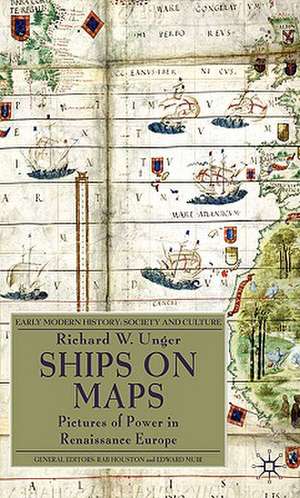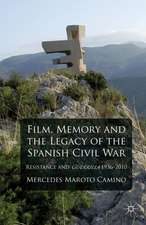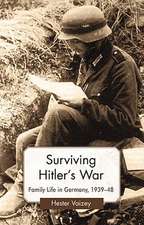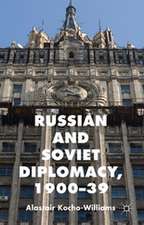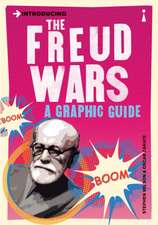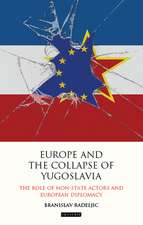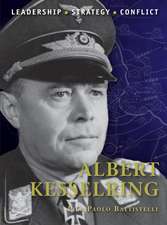Ships on Maps: Pictures of Power in Renaissance Europe: Early Modern History: Society and Culture
Autor Richard W. Ungeren Limba Engleză Hardback – 4 aug 2010
| Toate formatele și edițiile | Preț | Express |
|---|---|---|
| Paperback (1) | 639.08 lei 6-8 săpt. | |
| Palgrave Macmillan UK – 4 aug 2010 | 639.08 lei 6-8 săpt. | |
| Hardback (1) | 643.99 lei 6-8 săpt. | |
| Palgrave Macmillan UK – 4 aug 2010 | 643.99 lei 6-8 săpt. |
Din seria Early Modern History: Society and Culture
-
 Preț: 348.15 lei
Preț: 348.15 lei -
 Preț: 221.08 lei
Preț: 221.08 lei - 15%
 Preț: 640.37 lei
Preț: 640.37 lei -
 Preț: 393.52 lei
Preț: 393.52 lei - 15%
 Preț: 644.49 lei
Preț: 644.49 lei -
 Preț: 391.61 lei
Preț: 391.61 lei - 15%
 Preț: 589.65 lei
Preț: 589.65 lei - 15%
 Preț: 645.60 lei
Preț: 645.60 lei -
 Preț: 389.11 lei
Preț: 389.11 lei - 15%
 Preț: 641.71 lei
Preț: 641.71 lei - 18%
 Preț: 724.63 lei
Preț: 724.63 lei - 18%
 Preț: 1226.60 lei
Preț: 1226.60 lei - 18%
 Preț: 1117.03 lei
Preț: 1117.03 lei - 18%
 Preț: 729.53 lei
Preț: 729.53 lei - 15%
 Preț: 588.83 lei
Preț: 588.83 lei -
 Preț: 330.65 lei
Preț: 330.65 lei -
 Preț: 405.48 lei
Preț: 405.48 lei - 15%
 Preț: 641.53 lei
Preț: 641.53 lei -
 Preț: 382.75 lei
Preț: 382.75 lei - 8%
 Preț: 536.21 lei
Preț: 536.21 lei - 15%
 Preț: 699.77 lei
Preț: 699.77 lei - 18%
 Preț: 780.82 lei
Preț: 780.82 lei - 15%
 Preț: 699.77 lei
Preț: 699.77 lei -
 Preț: 392.60 lei
Preț: 392.60 lei - 15%
 Preț: 640.06 lei
Preț: 640.06 lei - 15%
 Preț: 640.88 lei
Preț: 640.88 lei - 15%
 Preț: 642.68 lei
Preț: 642.68 lei - 15%
 Preț: 640.55 lei
Preț: 640.55 lei - 15%
 Preț: 635.01 lei
Preț: 635.01 lei -
 Preț: 386.00 lei
Preț: 386.00 lei
Preț: 643.99 lei
Preț vechi: 757.63 lei
-15% Nou
Puncte Express: 966
Preț estimativ în valută:
123.25€ • 128.33$ • 104.16£
123.25€ • 128.33$ • 104.16£
Carte tipărită la comandă
Livrare economică 10-24 martie
Preluare comenzi: 021 569.72.76
Specificații
ISBN-13: 9780230231641
ISBN-10: 0230231640
Pagini: 233
Ilustrații: XXIII, 233 p. 52 illus., 8 illus. in color.
Dimensiuni: 155 x 235 x 20 mm
Greutate: 0.52 kg
Ediția:2010
Editura: Palgrave Macmillan UK
Colecția Palgrave Macmillan
Seria Early Modern History: Society and Culture
Locul publicării:London, United Kingdom
ISBN-10: 0230231640
Pagini: 233
Ilustrații: XXIII, 233 p. 52 illus., 8 illus. in color.
Dimensiuni: 155 x 235 x 20 mm
Greutate: 0.52 kg
Ediția:2010
Editura: Palgrave Macmillan UK
Colecția Palgrave Macmillan
Seria Early Modern History: Society and Culture
Locul publicării:London, United Kingdom
Cuprins
List of illustrations Preface Acknowledgements Abbreviations Glossary of Shipbuilding Terms Introduction Maps and Mapping Making Maps without Ships, with Ships Mapping before the Renaissance Portolans and the Late Medieval Transition The Classical Revival, Printing and Maps New Routes and Portuguese Map Makers Iberian Influence in Southern Europe Northern Europe and Southern Practices Ships, Geography, and Humanism Epilogue Bibliography Notes Index
Notă biografică
RICHARD W. UNGER trained as an economic historian and has published widely on ships and shipping before 1800, brewing from the Middle Ages to the twentieth century and on energy use and its impact in pre-modern Europe. He has taught history at the University of British Columbia for more than four decades.
